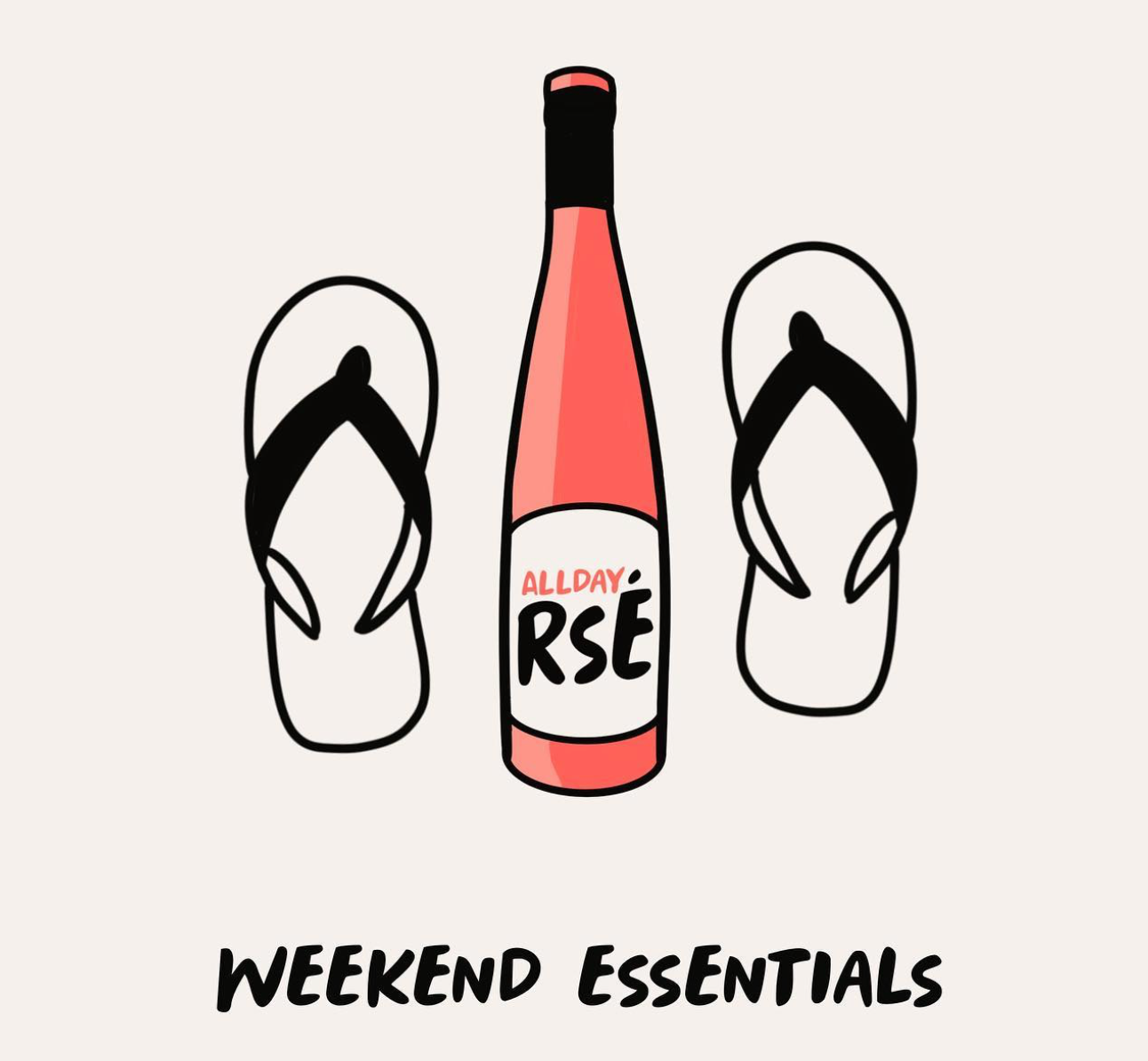There’s a storm brewing in the wine world over Gen Z’s drinking habits - or, more accurately, their lack thereof. Producers lament that Zoomers are turning their backs not only on wine, but on alcohol altogether. Analysts dissect their behaviour, brands try to decode their preferences, and marketing teams retool entire strategies flirting with younger consumers.
Does it work? Most probably, it does - to a certain extent. But here’s the thing: no one is better equipped to create a product for Gen Z than Gen Z themselves. The wine world, like any other industry, ignores that truth at its peril.
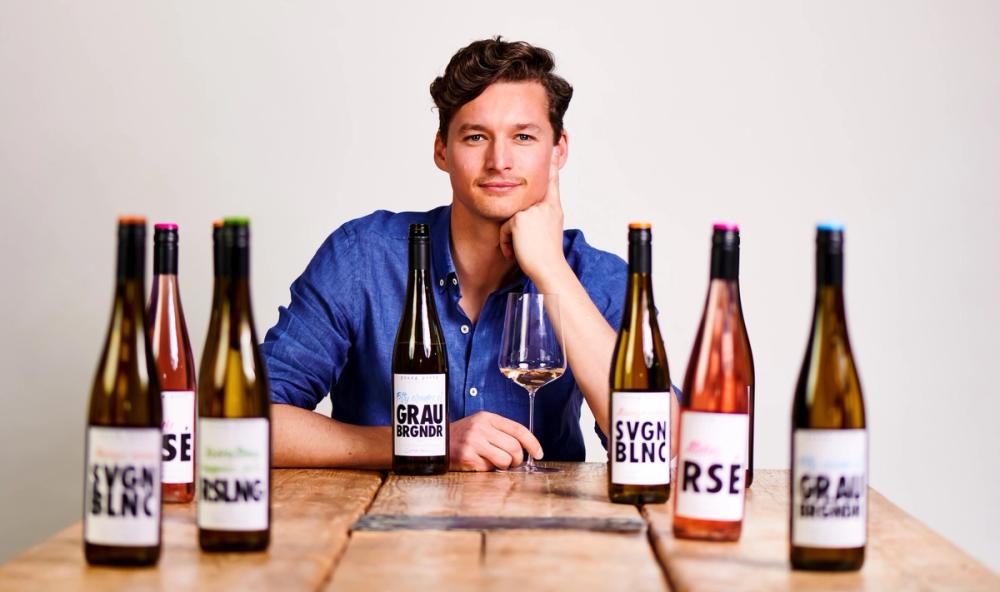
Eliah Werner is using his Procter & Gamble training to connect with younger wine drinkers with Young Poets
Young Poets Wine is a German winemaking collective I stumbled upon on Instagram. Drawn in by clever and witty copy, simple and fresh design, and a tone of voice that felt utterly un-wine-industry. Curious, I dug deeper: their website was slick, their concept sharp, and the wines looked appealing. I actually ordered a few from the company’s Amazon-based online store which is a smart move in itself, leveraging a trusted, high-traffic platform to simplify the buying and selling experience).
The wines are good, consumer-friendly, and very bright in character, all fermented and aged in steel tanks. 'Everything Happens for a RSLNG' is a very pleasant Riesling from Pfalz, fresh, citrusy, a burst of pineapple on the nose, and zippy acidity on the palate. ‘Fifty Shades of GRBGNDR’ is a golden-hued Grauburgunder from Württemberg, demonstrating floral and stone fruit notes, a creamy mouthfeel, and a lingering finish of ripe apricot.
‘Allday RSÉ’, made of Zweigelt and Muskat-Trollinger, is perhaps a touch sweet for my taste (this wine is semi-dry), but still charming and definitely loved by customers - pale in colour, bursting with red fruit and pure sunshine.
All Young Poets’ wines are crafted by young winemakers from different regions and even different countries. The range includes bottles from Italy’s sun-soaked Puglia, and Germany’s ever-reliable Pfalz, Baden, and Württemberg. I was fascinated by the concept, so much so I reached Eliah Werner, the company’s founder and creative force, to uncover the story behind Young Poets.
Talking the right language
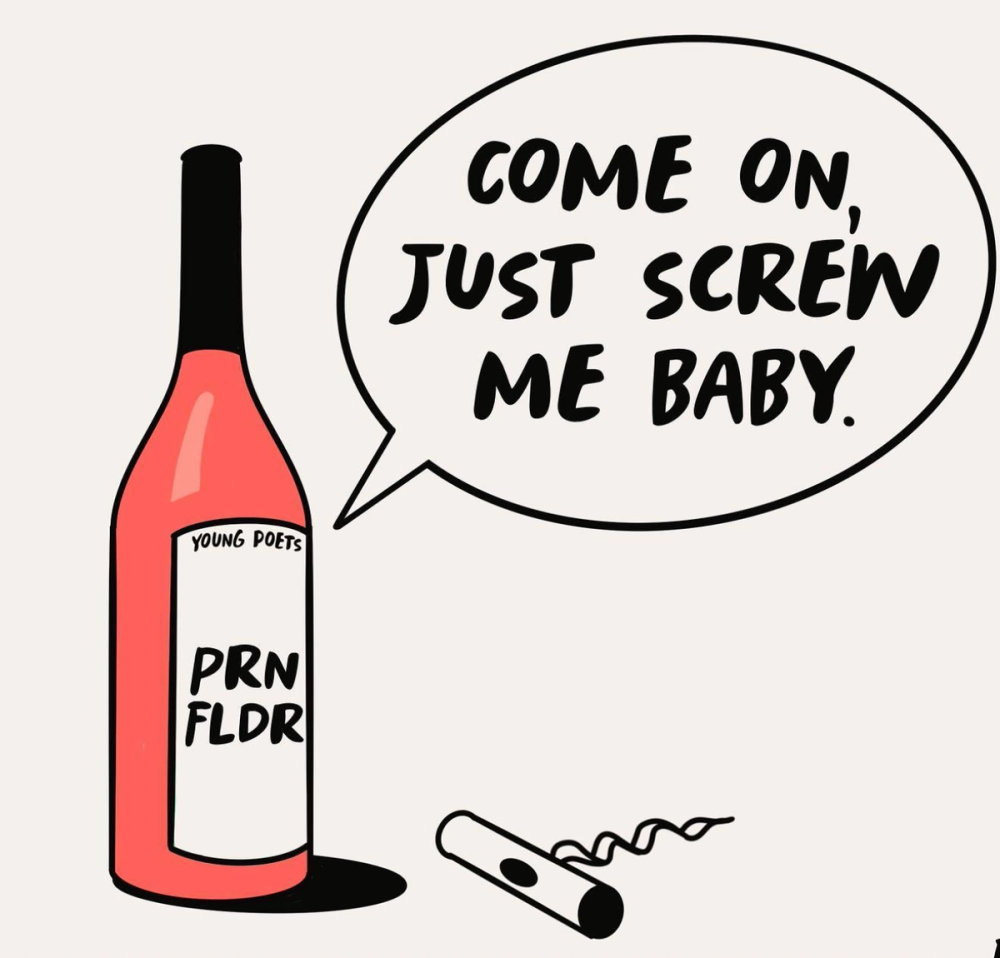
Young Poets thrives on its cut-through marketing
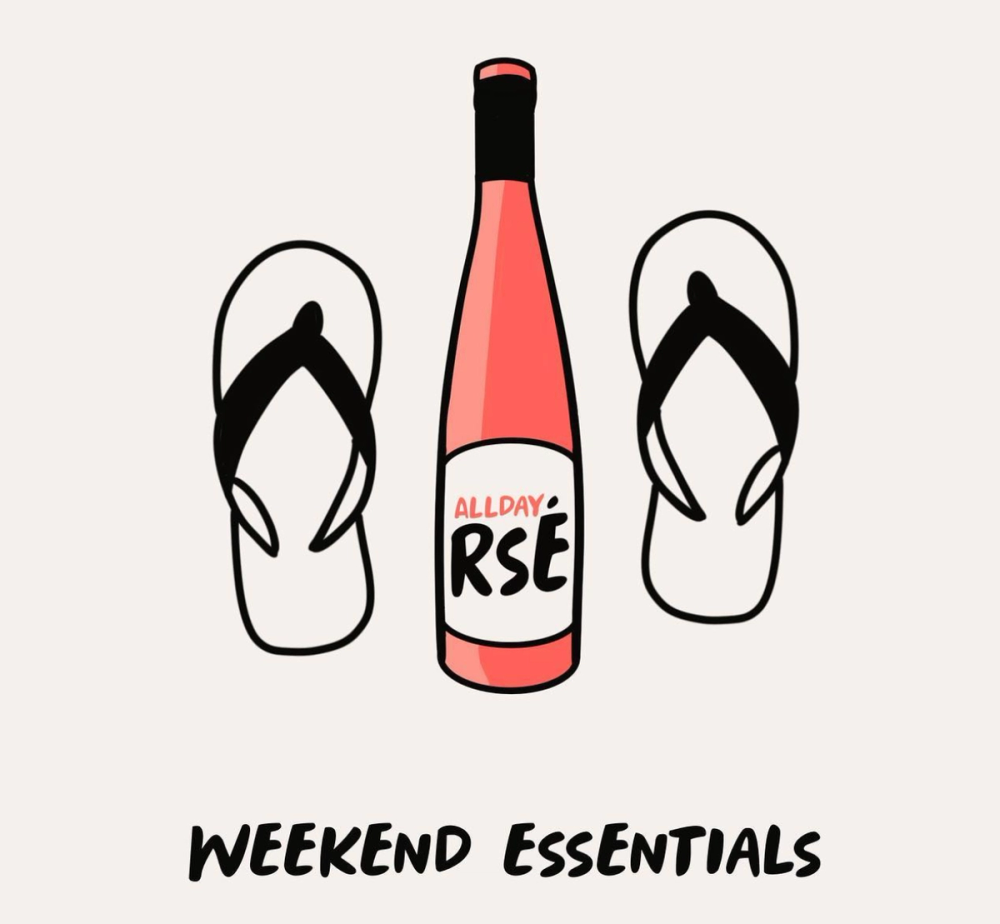
According to Werner, Young Poets is about “wine that speaks your language”. The name itself is a tribute to anyone searching for their own voice, their taste, their way. This isn’t a world of châteaux, crus, and gold-foiled pretension. It’s about clean design, honest storytelling, and a crew of talented young winemakers from Germany and beyond.
Every bottle also comes with a clever little poem and, more importantly, a real person behind it - not just a vintner, but a Young Poet.
“We like to think outside the bottle and put first what young consumers actually care about,” he adds. “First and foremost, it’s simplicity. Wine can feel overwhelming. We make the choice easy and intuitive. Wine is fun. Our wines carry these playful witty names, because wine should make you smile even before the first sip.”
Social impact is also extremely important for Young Poets because, let’s be honest, values matter to Gen Z.
“For every bottle sold, we donate to a children’s literacy charity, helping kids learn to read, so there’ll be more young poets in the future. It’s a wine with a purpose, personality, and poetry - all in one,” says Werner.
His personal path into the wine world began on a road trip: “I was in the US, driving down the West Coast from Vancouver to San Diego in a cheap rental car sleeping in the back between vineyards and breweries. Along the way, I met young winemakers and craft brewers, sipped their stories, and was blown away by the creativity. I still remember seeing a bottle of Fat Bastard for the first time and the explosion of bold, expressive craft beer labels.
“It was raw, fresh, and unfiltered and it made me realise: wine doesn’t have to be buttoned-up or intimidating.”
His fascination with food and wine, though, started much earlier. His father designed kitchens for Miele, his mother taught cooking at school — so good food and fine wines have always been part of their family life.
Brand building
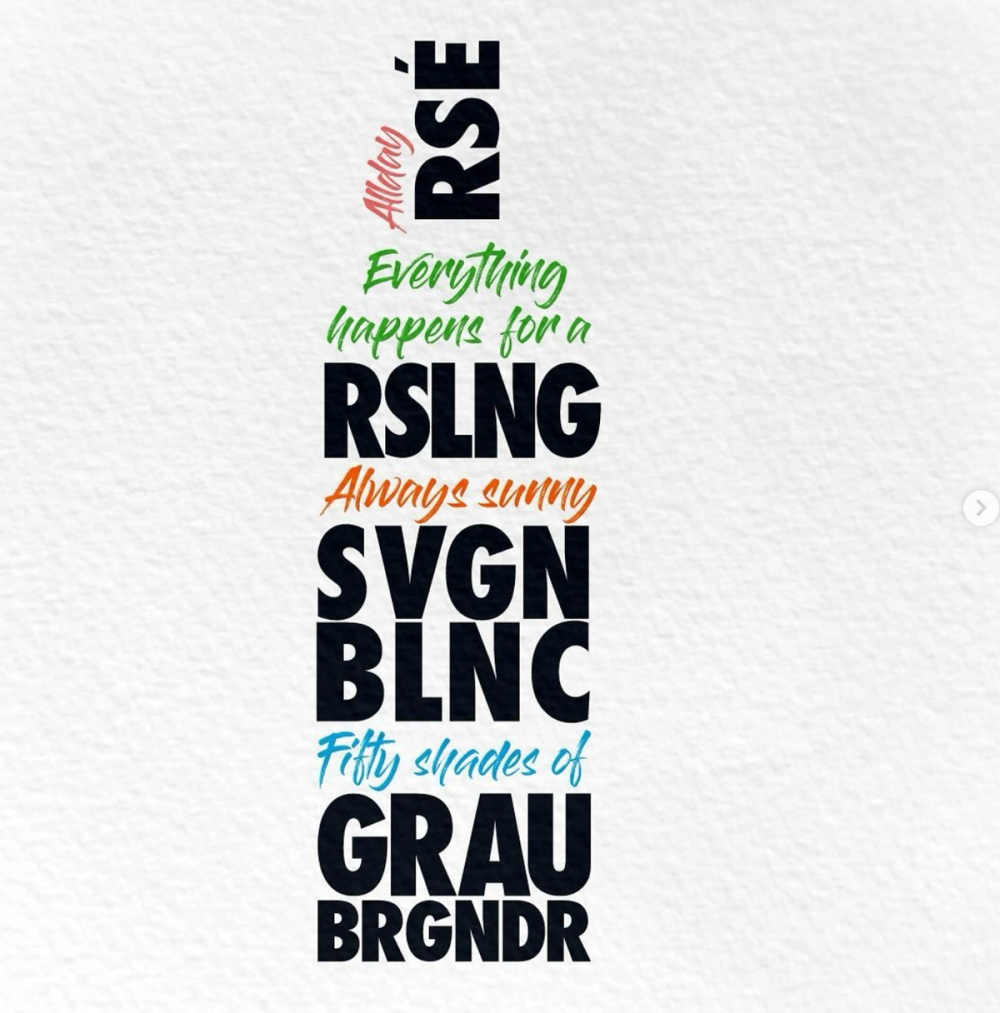
Professionally, Werner made his name in marketing, working at Procter & Gamble on global brands like Oral-B, Gillette, and Pampers. It was a successful run — one that gave him a deep understanding of how powerful branding can reshape even the most traditional of industries.
“I always had this feeling that wine wasn’t speaking to our generation. I wanted to create something on my own, reaching our crowd,” he explains.
As a joke, or an experiment, he decided to create a few bottles for himself and his friends, however, it soon turned into something bigger.
“In that design, I poured everything I had learned at P&G - how to tell a story, how to build trust, how to make something that feels both personal and professional,” he says.
So, Young Poets was born. Not from a business plan, but from a creative impulse and an emotional understanding of a generation that wanted wine to feel more like a conversation than a lecture.
Werner fears the wider wine industry has become too snobbish and has lot its appeal to the Gen Z generation: “That’s one of the main reasons I started Young Poets. Wine is too coded. Too many rules, too much prestige signalling, not enough joy. For many young people, it feels like showing up to a dinner party where you don’t know the dress code, and everyone speaks in tasting notes.”
Werner explains that Gen Z and younger millennials are curious, open-minded, and values-driven - but they don’t want any gatekeeping. They want wine that fits their world: comprehensible, honest, fun, beautiful, and stress-free.
If the wine industry doesn’t adapt its tone, culture, and branding, it risks becoming irrelevant, he says. However, he is sure there is still a huge opportunity for those that can talk right the language.
“Up-trade your new consumers in a smarter way. Hook them with an easy-going wine, get them emotionally attached to your brand, and then invite them to discover more exclusive or higher-end wines. Start with fun, stay for depth.”
Keep it simple
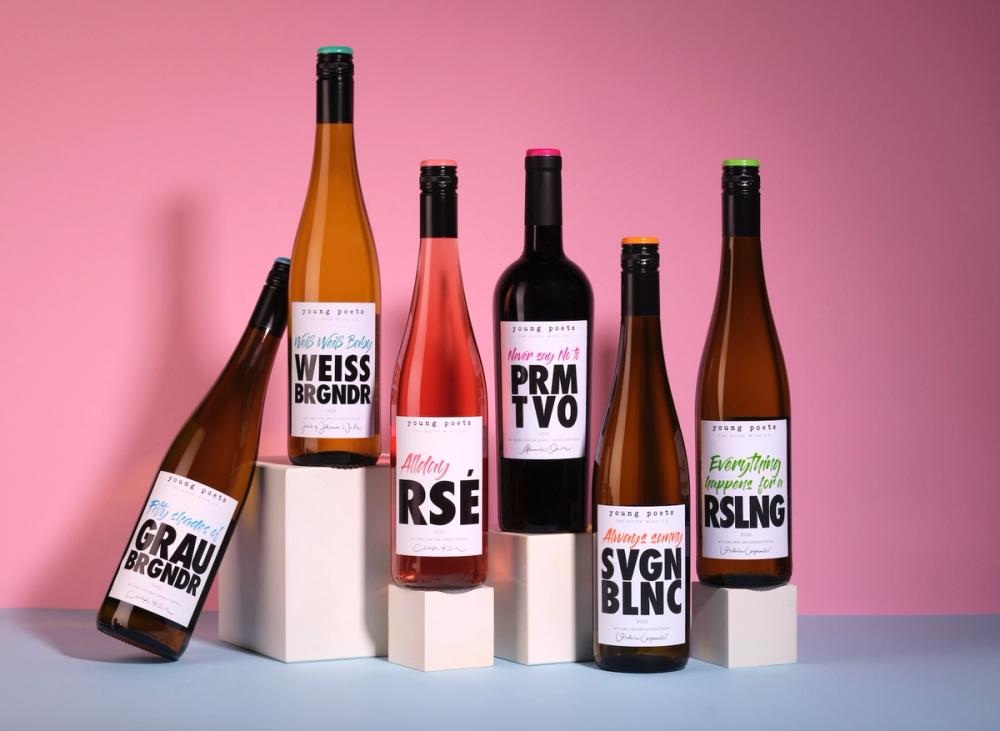
The Young Poets range which is now being sold around the world
Werner is convinced that modern wines should be bright, clean, expressive and above all, drinkable.
“Most people aren’t chasing Parker points or studying ageing charts. They want something that tastes good, feels fresh, and fits the moment, whether that’s a dinner party, a park bench, or a Tuesday night at home.
“The ideal wine today is a crowd-pleaser, something you can confidently bring to any table, and a love-at-first-sip experience that doesn't need explanation.”
He adds: “Today’s consumers are curious but not traditional. They’re open to natural wines, chilled reds, or a crisp white in a can - as long as the taste delivers and the vibe feels right. So for us, the ideal profile is: fruit-forward, not fussy”.
Unlike some experts and winemakers who secretly hope that no and low alcohol is a temporary thing, Werner believes these wines have a bright future.
“No and low is not just a trend - it’s a lifestyle shift. People want to drink more mindfully, without giving up the ritual or the social part of wine.”
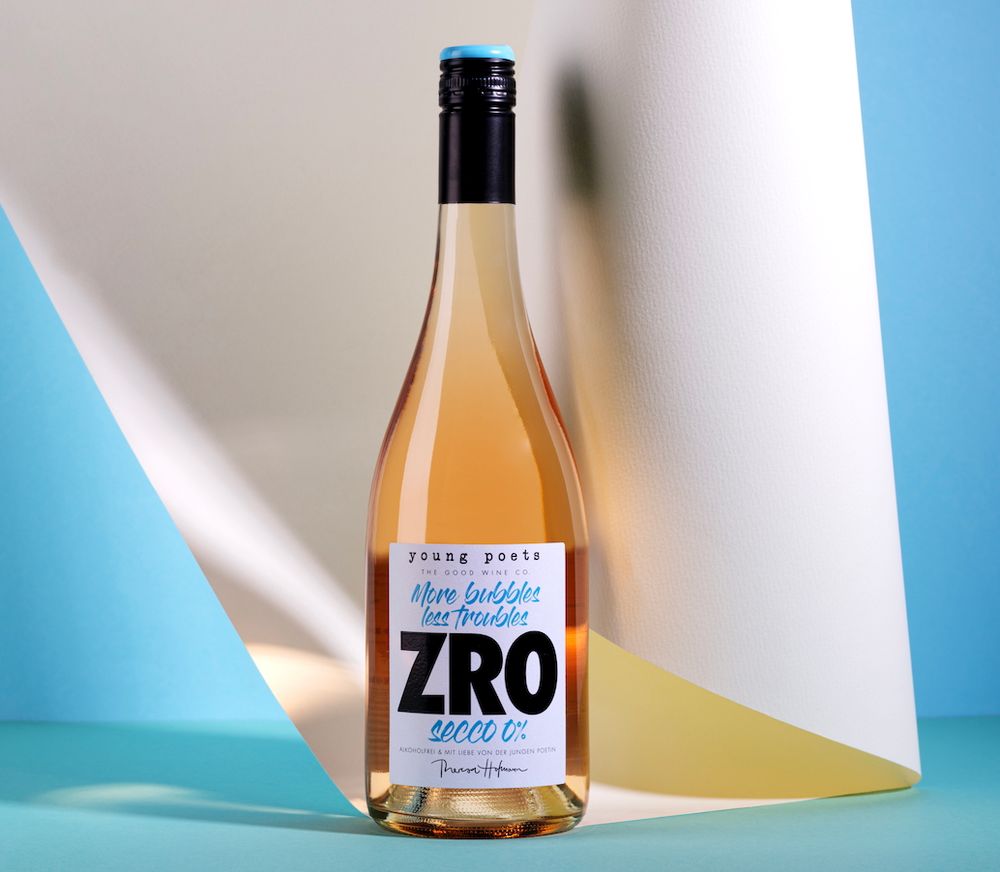
Young Poets' no and low wine...
Werner adds: “That said, taste still matters. Right now, a lot of de-alcoholised wines feel like a compromise. Something you tolerate, not something you reach for. But that’s changing. The brands that figure out how to make no and low wines that feel exciting, high-quality, and design-forward, will win big.
"That’s why we’re launching ‘More Bubbles, Less Trouble’ — ZRO Secco 0%. It’s alcohol-free, easy to drink, fun to bring, and even more fun to say. It’s everything we believe in: accessible, modern, and designed to make you smile - with or without alcohol. We’re convinced the future of wine includes no and lowbut only if it’s done right.”
Werner and Young Poets are also keep to bust some myths that they believe is holding the wine industry back and arguably its most persistent misconceptions. His insights are sharp, refreshingly honest, and, frankly, quite funny, but also incredibly useful. See what you think.
- Myth 1: Expensive means better.
Some of our most loved wines are under €10. Price doesn’t always reflect taste. It reflects packaging, perception, or origin. A well-made, affordable wine can create just as much emotion. - Myth 2: You either “get” wine or you don’t.
Wine isn’t a test. You don’t need a certificate or a cellar to enjoy it. Taste is personal. If you like it, it’s good. Full stop. - Myth 3: Traditional means trustworthy.
A classic-looking label doesn’t guarantee quality. In fact, modern design often reflects a modern mindset: transparency, accessibility, and intent. Trust can come in bold fonts, too. - Myth 4: Wine has to be serious.
Wine can be fun, playful, even a bit silly - and still be great. Names like Fifty Shades of GRAUBRGNDR or Everything Happens for a RSLNG don’t take away from quality - they bring people in. - Myth 5: You always need a food pairing.
Sometimes all you need is a glass and a good conversation. Wine should fit your life. Not the other way around. - You can find out more about Young Poets and the wines it makes at its website here.
